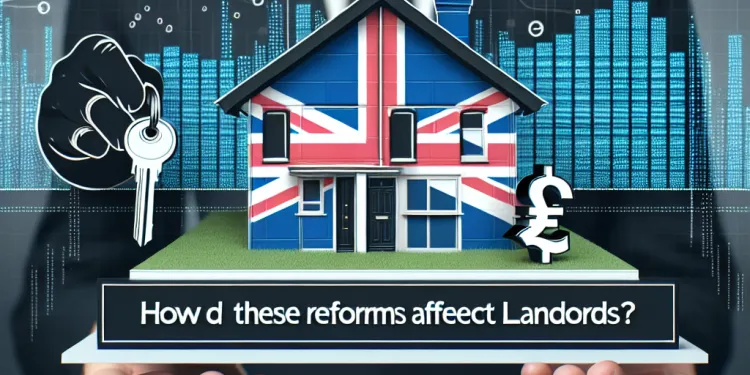
Find Help
More Items From Ergsy search
-
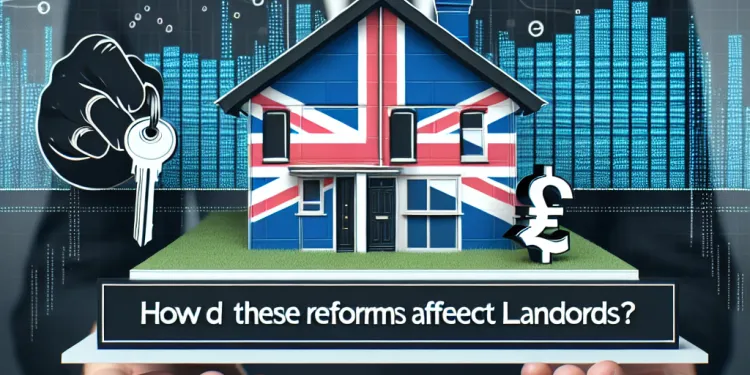
How do these reforms affect landlords?
Relevance: 100%
-

Are there reforms concerning subletting?
Relevance: 73%
-

How does the reform impact renting costs?
Relevance: 68%
-

What are the new Tenancy Law Reforms in the UK in 2025?
Relevance: 67%
-

How will the cuts impact landlords?
Relevance: 56%
-

Can my landlord evict me without providing a reason?
Relevance: 54%
-

Landlord Licensing Laws Under Review as Tenants Call for Stronger Protections
Relevance: 49%
-

Can I negotiate with my landlord to avoid eviction?
Relevance: 48%
-

Does the reform address uninhabitable properties?
Relevance: 47%
-

What can I do if my landlord wants to evict me?
Relevance: 47%
-
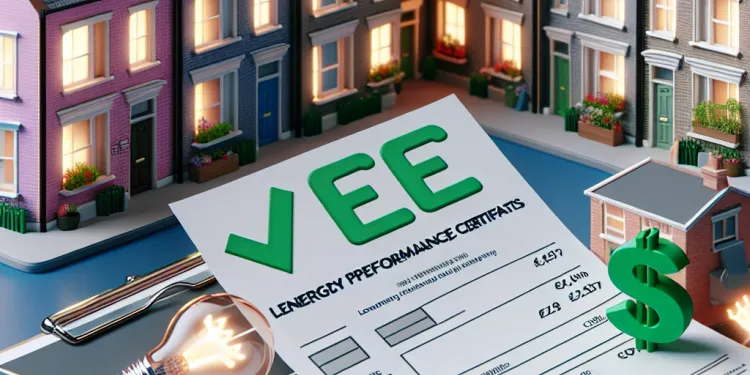
Are landlords required to provide energy performance certificates?
Relevance: 46%
-
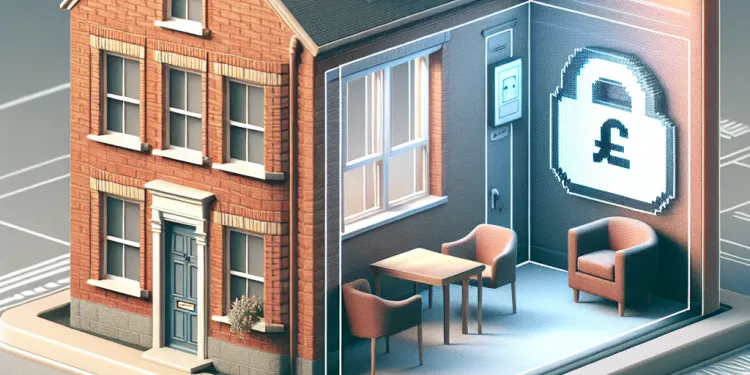
Can a landlord lock me out or remove my belongings to evict me?
Relevance: 45%
-

How are disputes between landlords and tenants handled?
Relevance: 45%
-

Chancellor Unveils Plans to Reform UK Tax System
Relevance: 45%
-
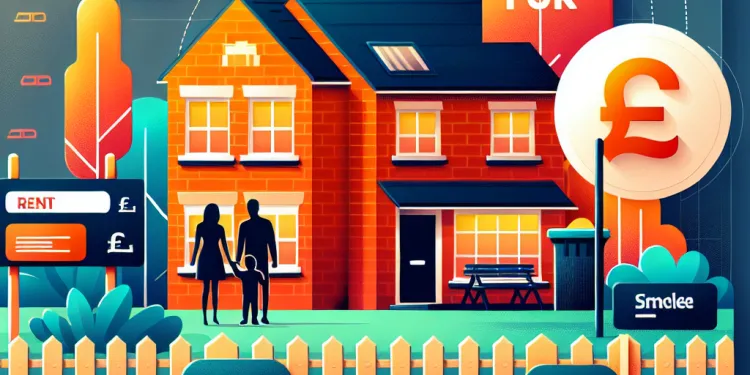
Can a landlord evict me for complaining about property conditions?
Relevance: 44%
-

Did the US propose reforms to the WHO before deciding to leave?
Relevance: 43%
-

Debate Intensifies Over Welfare Reforms Impacting Disabled Citizens
Relevance: 43%
-

Calls for Reform as Report Highlights Disparities in Sentencing Practices
Relevance: 42%
-

What should I do if I receive an eviction notice from my landlord?
Relevance: 42%
-

How do the reforms affect housing benefit tenants?
Relevance: 42%
-

Watchdog Raises Concerns Over Commercial Landlord Regulations
Relevance: 41%
-

5 Broker Exclusive Buy to Let Mortgage Lenders you need to know about as a Landlord
Relevance: 40%
-

Supreme Court Delivers Key Ruling on Electoral Reform
Relevance: 37%
-
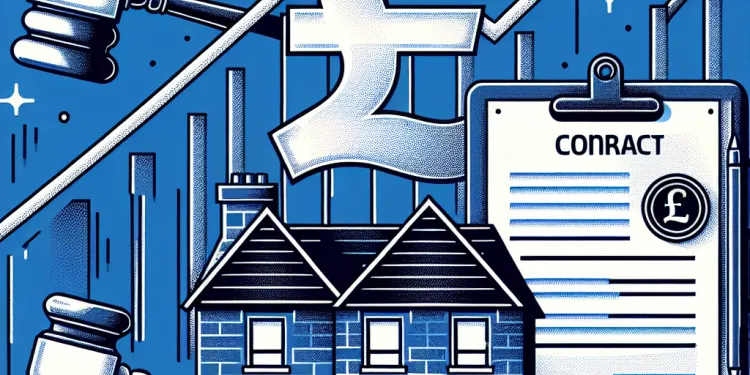
Are there changes to the eviction process?
Relevance: 31%
-

What new protections are included for tenants?
Relevance: 30%
-

Has the notice period for eviction changed?
Relevance: 29%
-

How are rent increases regulated under the new law?
Relevance: 28%
-

What changes affect pet policies in rented homes?
Relevance: 24%
-

How are landlord-tenant issues resolved in property litigation?
Relevance: 23%
-

What are my rights during the eviction process?
Relevance: 23%
-

How can I prepare for an eviction court hearing?
Relevance: 22%
-

Can I end a lease agreement early?
Relevance: 22%
-

What can I do if I believe my eviction is retaliatory?
Relevance: 22%
-

What are the consequences of having an eviction on my record?
Relevance: 22%
-

Can eviction affect my credit score?
Relevance: 21%
-

What can tenants do if they are affected by the cuts?
Relevance: 21%
-

How can I contest or challenge the eviction?
Relevance: 21%
-

Can I switch energy suppliers if I’m renting?
Relevance: 21%
-

What is the key purpose of the UK Tenancy Law Reforms in 2025?
Relevance: 21%
-

Can I stop an eviction if I catch up on rent payments?
Relevance: 21%
Introduction to Recent Reforms
In recent years, the UK housing market has experienced a number of legislative changes aimed at reforming the rental sector. These reforms have been implemented to address various issues, such as housing affordability, tenant rights, and the quality of rental housing. Understanding how these reforms affect landlords is crucial for navigating the evolving landscape of property management.
Changes in Tenancy Regulations
One of the significant reforms affecting landlords is the alteration of tenancy regulations. The introduction of the Tenant Fees Act 2019, for instance, has prohibited landlords and letting agents from charging excessive fees to tenants. Previously common charges for things like referencing or inventory have been restricted, thereby reducing potential income sources for landlords.
Impact on Tenant Rights
The reforms have largely been focused on strengthening tenant rights. For example, the proposed abolishment of Section 21, which allows landlords to evict tenants without providing a reason, is aimed at providing more security to tenants. While this is beneficial for tenants, it presents challenges for landlords who may find it harder to repossess their properties, even in cases where they have valid reasons for wanting to reclaim possession.
Regulatory Compliance Requirements
New compliance requirements have been introduced, impacting how landlords manage their properties. The Electrical Safety Standards in the Private Rented Sector (England) Regulations 2020, for instance, require landlords to ensure electrical installations are inspected and tested by a qualified person every five years. Complying with these regulations requires additional time and financial resources, potentially affecting the profitability of rental properties.
Financial Implications
The financial implications of these reforms can be significant for landlords. The reduction in tax relief on mortgage interest, which has been gradually phased out since 2017, means that landlords can no longer deduct all their mortgage expenses from their rental income to reduce their tax bills. This change has led to higher tax liabilities for many landlords, impacting the overall profitability of rental properties.
Impact on Property Investments
For landlords considering expanding their property portfolios, these reforms may influence investment decisions. The increased regulatory environment and financial burdens may deter some investors from entering the market or lead existing landlords to sell off properties. This could result in a reduction in the availability of rental properties, potentially pushing up rents due to reduced supply.
Conclusion
Overall, while these reforms are intended to improve the rental sector's functioning, landlords face several challenges as a result. Navigating the new regulations requires a keen understanding of the legislative landscape and strategic financial planning. Landlords must adapt to these changes to maintain compliance and protect their investment returns while ensuring they continue to provide quality housing to tenants.
Introduction to Recent Changes
In the UK, there have been new rules about renting homes. These changes help make renting fairer and better for everyone. It’s important for landlords to know these new rules so they can manage their houses properly.
Changes in Renting Rules
One big change is the new rules about tenant fees. The Tenant Fees Act 2019 says landlords and agents cannot charge tenants a lot of extra money. Before, landlords could charge for many things like checking references. Now, these fees are restricted. This means landlords might make less money from these fees.
Tenant Rights
The new rules also give tenants more rights. For example, there is a plan to stop Section 21. This is a rule that let landlords evict tenants without a reason. This change helps tenants feel safer but makes it harder for landlords to make tenants leave, even if they have a good reason.
Following the Rules
Landlords must now follow new safety rules. For example, they have to check electrical systems in their houses every five years. This takes time and money and might reduce how much landlords earn from renting.
Money Matters
These changes also affect landlords’ money. Before, landlords could use all their mortgage interest to reduce their tax bills. Now, they cannot, which means they might have to pay more in taxes. This makes renting less profitable for landlords.
Investing in Property
If landlords want to buy more houses to rent out, these new rules might make them think twice. More rules and money worries might make some landlords sell their houses. This could mean fewer homes to rent, making rent prices go up.
Conclusion
Overall, even though the new rules aim to make renting better, landlords face some challenges. To keep up, landlords need to understand the new rules and plan their finances carefully. This way, they can still provide good homes and keep their investments safe.
Frequently Asked Questions
What are the general impacts of these reforms on landlords?
The reforms may change the rights and responsibilities of landlords, affecting how they manage their properties and interact with tenants.
Do the reforms change the process for raising rent?
Yes, the reforms may impose new regulations or restrictions on how and when landlords can increase rent.
How do these reforms affect eviction procedures?
The reforms might introduce new rules or lengthen the process for evicting tenants, aiming for greater tenant protection.
Will there be changes to lease agreements due to these reforms?
Yes, landlords may need to update lease agreements to comply with new legal requirements introduced by the reforms.
Are there new maintenance responsibilities for landlords?
The reforms might outline additional maintenance obligations that landlords must fulfill to ensure tenant safety and property standards.
How do these reforms impact security deposit handling?
There could be new rules regarding how security deposits are collected, held, and returned to tenants.
Are there financial incentives for landlords under these reforms?
Some reforms might provide tax breaks or subsidies for landlords who comply with certain criteria or make improvements to their properties.
Will these reforms affect short-term rentals?
Yes, some reforms may impose new regulations specifically targeting the operation of short-term rentals by landlords.
Do the reforms include new tenant rights that landlords must observe?
Yes, landlords may need to be aware of and adapt to enhanced tenant rights that are enforced by the reforms.
What training or resources are available for landlords to understand these reforms?
Landlords can access government websites, attend seminars, or consult legal professionals for a better understanding of the reforms.
Can landlords oppose or appeal elements of the reforms?
Landlords may be able to express opposition through public consultations or lobby groups, but appeal processes depend on local regulations.
How do these reforms affect renewable energy installations in rental properties?
Reforms might encourage or require landlords to install energy-efficient systems or provide incentives for doing so.
Are there penalties for non-compliance with the new reforms?
Yes, landlords who do not comply with the reforms may face fines, legal action, or restrictions on renting out properties.
Do these reforms affect how landlords screen tenants?
The reforms may impose new criteria for tenant selection, including rules about credit checks or discrimination.
How do the reforms impact rental property renovations?
Landlords may need to meet certain standards or seek approval for renovations to align with new regulations.
Will landlords need to register with any new governing bodies?
Some reforms may require landlords to register or obtain permits with specific regulatory bodies to maintain compliance.
Are there specific reforms for properties located in certain areas?
Yes, reforms may target specific areas, especially if they are deemed high-demand or in need of affordable housing solutions.
How do these reforms address tenant privacy?
Reforms might include stricter privacy protections for tenants, affecting how landlords handle personal information.
Will these reforms impact landlord insurance needs?
Landlords may need to adjust their insurance policies to cover new liabilities or requirements introduced by the reforms.
How do the reforms support communications between landlords and tenants?
Reforms may encourage or require clearer communication channels and processes for dispute resolution between landlords and tenants.
How do these changes affect people who own rental homes?
The new rules might change what landlords can and cannot do. This means they might have to manage their houses or talk to the people who live there (tenants) in a different way.
Do the changes make a new way to raise rent?
This question is asking if there are new rules for how rent can be increased.
Support or tools:
- Use a calendar to track when your rent might go up.
- Ask a helper, like a family member or friend, to explain any new rules.
- Draw a simple chart to see how rent has changed over time.
Yes, the changes might mean new rules for landlords. This could change how and when they can increase the rent.
What changes do these new rules make to moving out of a home?
The changes might bring in new rules or make it take longer to ask someone to leave their home. This will help keep people safe in their homes.
Will the new rules change lease agreements?
Lease agreements are papers you sign to rent a house or flat.
If there are any new rules, they might change these papers.
To help understand changes, you can:
- Ask someone you trust to explain.
- Use pictures or drawings to help learn.
Yes, landlords might have to change their lease papers because of new laws.
Do landlords have new jobs to take care of?
The new rules might say that landlords have more jobs to do. These jobs help keep houses safe and in good shape for people who live there.
What changes are there to the way security deposits are handled?
There might be new rules about how landlords take, keep, and give back security deposits to people who rent homes.
Do landlords get money help with these changes?
These changes might give money help to landlords. This is called an "incentive." It means landlords could get extra money if they do certain things. Here’s how to understand it:
- Sometimes, landlords can get money if they fix up their houses.
- This might mean they can make their houses nicer or better for people to live in.
- Landlords might need to follow some rules to get this extra money.
To understand more, it might help to:
- Ask someone to explain it to you.
- Use simple language tools online.
- Read about it in small, easy parts.
Some changes might give money benefits or help to landlords. This is if they follow certain rules or make their properties better.
Will these changes affect short-term rentals?
The word "reforms" means "changes". Here, we are asking if the changes will have an impact on places you can rent for a short time, like vacation homes or apartments.
To help understand, you can:
- Ask someone to explain the question.
- Use pictures to see what "short-term rentals" mean.
Yes, new rules might be made. These rules can change how landlords rent out places for a short time.
Do the changes give new rights to people who rent homes?
Yes, landlords need to know about new rules that protect people who rent houses or apartments. Landlords might need to change how they do things because of these rules.
What support can landlords get to learn about these changes?
Are you a landlord? Do you want to know about the new changes? There are things that can help you learn:
- Training: You can take classes. This will help you understand what is new.
- Books and Guides: There are books and simple guides to read. They explain things clearly.
- Online Help: There are websites and videos. You can watch and learn from them.
Using these tools can help you learn about the changes easily.
Landlords can go to government websites. They can also go to meetings to learn more. Talking to a lawyer can help them understand new rules better.
Can landlords say no or change the new rules?
If landlords do not agree with something, they can say so. They can speak up in meetings where people talk about changes. They can also join groups that try to change things. But if they want to officially challenge or change a decision, they need to follow local rules. These rules are different in each place.
How do these changes affect putting in green energy in rental homes?
There might be new rules to help landlords make buildings use less energy. Landlords might have to put in things that save energy, or they might get rewards if they do this job.
Will you get in trouble if you don't follow the new rules?
If landlords do not follow the new rules, they might get in trouble. They could have to pay money, go to court, or not be allowed to rent out homes anymore.
Do these changes change how landlords check tenants?
The new rules may change how people choose tenants for renting. This might include checking if tenants can pay bills on time or making sure everyone is treated fairly.
How do the changes affect fixing up rental homes?
- The new rules change how people can fix or improve rental homes. - It might cost more or take more time to make changes. - Ask for help if it's confusing. Talking to a lawyer or a housing advisor can help. - You can also use drawing tools to plan changes.Landlords might have to follow rules or ask for permission to make changes to their buildings. This is to make sure they follow the new rules.
Do landlords have to sign up with new groups?
Landlords might need to join new groups. This depends on new rules. Here are some tips for understanding:
- Use simple words to explain this.
- Look for help from support tools or ask someone you trust.
Some new rules might mean landlords need to sign up or get a permit. This helps make sure they follow the rules.
Are there special rules for homes in some places?
Yes, changes might focus on certain places, especially if those places need more homes or cheaper places to live.
How do these changes help keep tenants' information private?
Changes might be made to protect tenants' privacy better. This means landlords will have to be more careful with personal information.
How will these changes affect what landlords need for insurance?
Landlords might need to change their insurance plans. This is to make sure they have the right cover for new rules or responsibilities from the changes.
How do the changes help landlords and tenants talk better?
Changes to the rules might help people talk better when they have a problem. This is for both landlords (the people who own the home) and tenants (the people who rent the home).
Useful Links
This website offers general information and is not a substitute for professional advice.
Always seek guidance from qualified professionals.
If you have any medical concerns or need urgent help, contact a healthcare professional or emergency services immediately.
Some of this content was generated with AI assistance. We’ve done our best to keep it accurate, helpful, and human-friendly.
- Ergsy carfully checks the information in the videos we provide here.
- Videos shown by Youtube after a video has completed, have NOT been reviewed by ERGSY.
- To view, click the arrow in centre of video.
- Most of the videos you find here will have subtitles and/or closed captions available.
- You may need to turn these on, and choose your preferred language.
- Go to the video you'd like to watch.
- If closed captions (CC) are available, settings will be visible on the bottom right of the video player.
- To turn on Captions, click settings .
- To turn off Captions, click settings again.
More Items From Ergsy search
-

How do these reforms affect landlords?
Relevance: 100%
-

Are there reforms concerning subletting?
Relevance: 73%
-

How does the reform impact renting costs?
Relevance: 68%
-

What are the new Tenancy Law Reforms in the UK in 2025?
Relevance: 67%
-

How will the cuts impact landlords?
Relevance: 56%
-

Can my landlord evict me without providing a reason?
Relevance: 54%
-

Landlord Licensing Laws Under Review as Tenants Call for Stronger Protections
Relevance: 49%
-

Can I negotiate with my landlord to avoid eviction?
Relevance: 48%
-

Does the reform address uninhabitable properties?
Relevance: 47%
-

What can I do if my landlord wants to evict me?
Relevance: 47%
-

Are landlords required to provide energy performance certificates?
Relevance: 46%
-

Can a landlord lock me out or remove my belongings to evict me?
Relevance: 45%
-

How are disputes between landlords and tenants handled?
Relevance: 45%
-

Chancellor Unveils Plans to Reform UK Tax System
Relevance: 45%
-

Can a landlord evict me for complaining about property conditions?
Relevance: 44%
-

Did the US propose reforms to the WHO before deciding to leave?
Relevance: 43%
-

Debate Intensifies Over Welfare Reforms Impacting Disabled Citizens
Relevance: 43%
-

Calls for Reform as Report Highlights Disparities in Sentencing Practices
Relevance: 42%
-

What should I do if I receive an eviction notice from my landlord?
Relevance: 42%
-

How do the reforms affect housing benefit tenants?
Relevance: 42%
-

Watchdog Raises Concerns Over Commercial Landlord Regulations
Relevance: 41%
-

5 Broker Exclusive Buy to Let Mortgage Lenders you need to know about as a Landlord
Relevance: 40%
-

Supreme Court Delivers Key Ruling on Electoral Reform
Relevance: 37%
-

Are there changes to the eviction process?
Relevance: 31%
-

What new protections are included for tenants?
Relevance: 30%
-

Has the notice period for eviction changed?
Relevance: 29%
-

How are rent increases regulated under the new law?
Relevance: 28%
-

What changes affect pet policies in rented homes?
Relevance: 24%
-

How are landlord-tenant issues resolved in property litigation?
Relevance: 23%
-

What are my rights during the eviction process?
Relevance: 23%
-

How can I prepare for an eviction court hearing?
Relevance: 22%
-

Can I end a lease agreement early?
Relevance: 22%
-

What can I do if I believe my eviction is retaliatory?
Relevance: 22%
-

What are the consequences of having an eviction on my record?
Relevance: 22%
-

Can eviction affect my credit score?
Relevance: 21%
-

What can tenants do if they are affected by the cuts?
Relevance: 21%
-

How can I contest or challenge the eviction?
Relevance: 21%
-

Can I switch energy suppliers if I’m renting?
Relevance: 21%
-

What is the key purpose of the UK Tenancy Law Reforms in 2025?
Relevance: 21%
-

Can I stop an eviction if I catch up on rent payments?
Relevance: 21%


